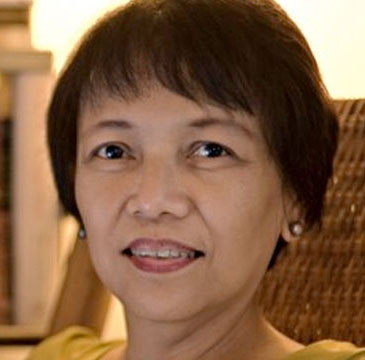SUMMARY
This is AI generated summarization, which may have errors. For context, always refer to the full article.
 Are you prepared for this? Colleagues in the media estimate that 85% of us are corrupt! That’s a super majority.
Are you prepared for this? Colleagues in the media estimate that 85% of us are corrupt! That’s a super majority.
They culled this figure from computations of PR people and media operatives, those who work below the radar screen to bribe us, and anecdotes from the field. That’s the low end, these sources say, because the number can reach a high of 90%, especially during election season!
I was shocked to hear this. I felt like Rip Van Winkle awakening to a new, cutting-edge world of corruption in the media after decades of slumber. Why, when I was starting out in the 1980s, it seemed like below 50% were on the take. The forms of corruption were obvious, with cash stuffed in envelopes the most common.
But the giving has evolved. The bribe offers have expanded to include a house (wow!), mutual fund investments, and as much as P5 million for sought-after TV personalities. With technology, the briber need not give the cash directly to the taker. There’s the ATM, of course, and the money is deposited directly to one’s bank account. Perhaps, this makes the transaction more impersonal and the guilt less.
We discussed these and more over the weekend, during the Media Nation, an annual gathering of multi-media journalists (broadcast, print, online). A gabfest of sorts, Media Nation gives us the time and space to dissect our industry’s problems and challenges. This year, we took out our blinders and looked hard at the elephant in the room.
Code of ethics
But before we all gnash our teeth in despair, some of the news organizations have started to address this. They’ve come up with codes of ethical conduct and have sanctioned and fired erring journalists.
A number of media entities have ombudspersons. They receive complaints about their staff, conduct probes, and resolve these issues. But do people outside our profession ever get to hear of these?
Here’s the problem. Many of these codes are not shared with the public; same with the actions taken against corrupt journalists. When readers and viewers are kept in the dark about the ethical norms of our profession, then they cannot hold us accountable. They cannot call our attention and point out that we’re not complying with our own tenets.
When the bad eggs are fired, they simply move to other news organizations because the reasons for the firing are hush-hush. Then the corruption virus remains in the industry.
The reason some media organizations have not made their ethics codes public is because, they say, these are works in progress. They are living documents. They undergo a continuous process of fine-tuning and the staff has to be continuously oriented. There’s a fear that the public will demand perfect compliance and hound the news organization no end.
I find this weird. We are at the frontlines of demanding transparency and accountability from public officials and the people we cover yet we exempt ourselves. Sometimes, I feel like we’re no different from the Supreme Court. We’re a league unto our own, beyond the scrutiny of the public.
Light and shadow
Some say that those who participate in Media Nation are all like-minded souls so we preach to the converted. It’s just us talking among ourselves without making a dent on the 85%.
But here’s the thing. Even if some people say that they know who are corrupt among us, even if they are privy to those who are on the corrupt A-list doesn’t make our working environment any better. Just because we don’t accept bribes doesn’t mean that all is well and we can go on doing our work without being affected by this reality.
Corrupt editors, reporters, columnists, producers, broadcasters cast a dark shadow on our profession. Whatever we do can be tainted by perception. Why is this so? Because we are all suspect, because our profession is still muddied by corruption.
Some of us have experienced this. And it can be bruising.
Why doesn’t the 15% get together then to do something? As a senior colleague who has seen most of it told me, “There will always be corruption. Let’s draw the line, separate them from us.”
One way to do this is to violate the 11th commandment: Don’t get found out. The public should know. How? By media writing, reporting on media. By the viewing, listening and reading public engaging us, giving us tips and leads on corruption in our ranks. This, I hope, can be one self-cleansing mechanism.
As one writer said, “Light reveals us to ourselves.” To this, if I may add: Light reveals us to others, too. – Rappler.com
Add a comment
How does this make you feel?
There are no comments yet. Add your comment to start the conversation.